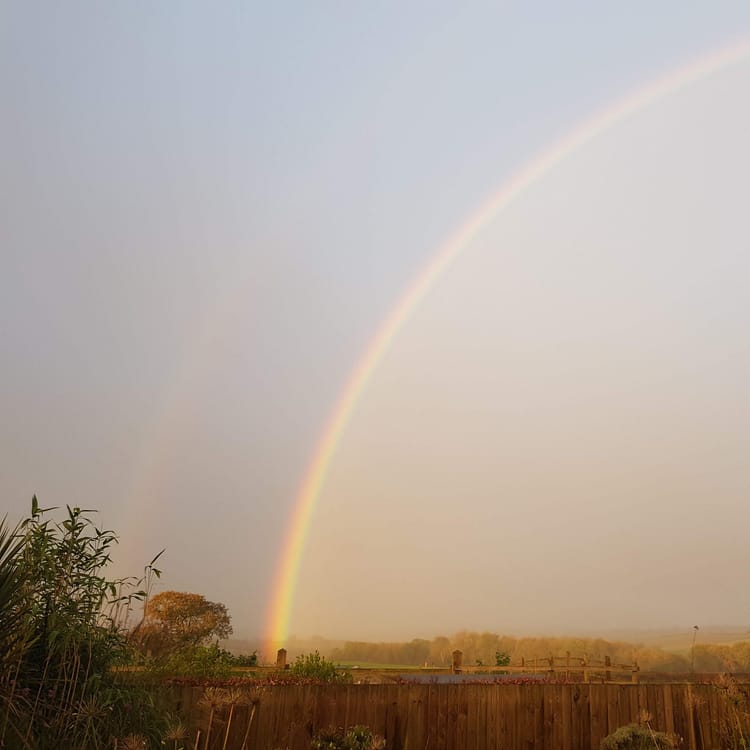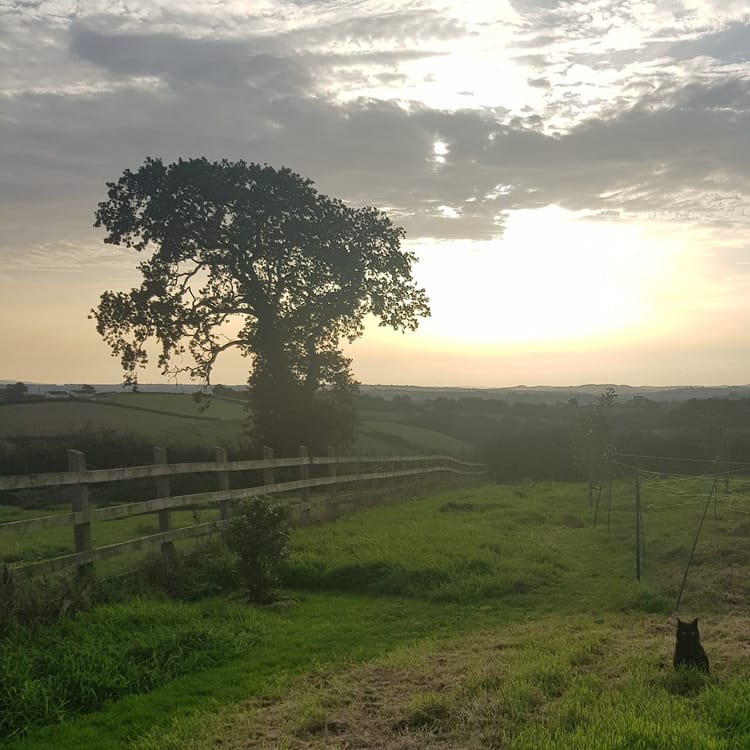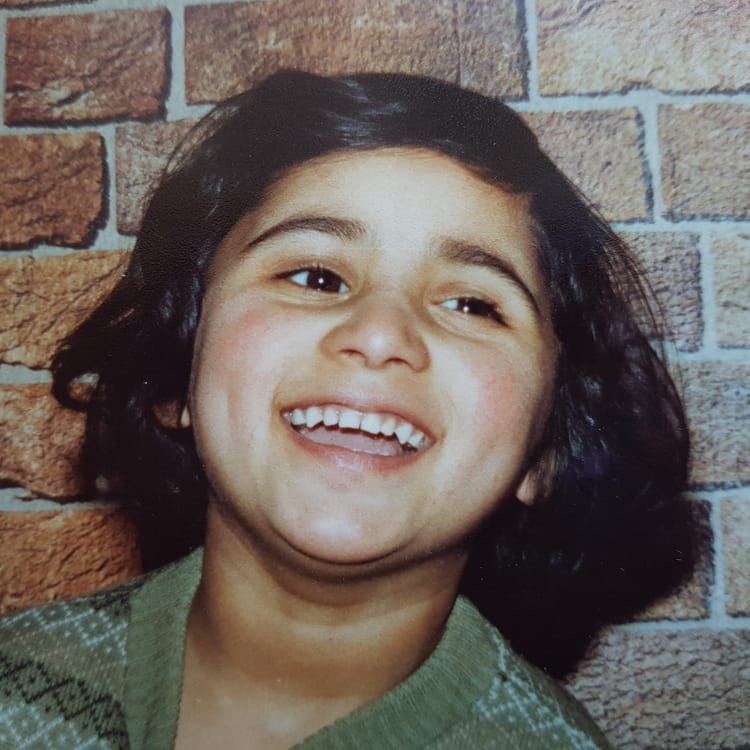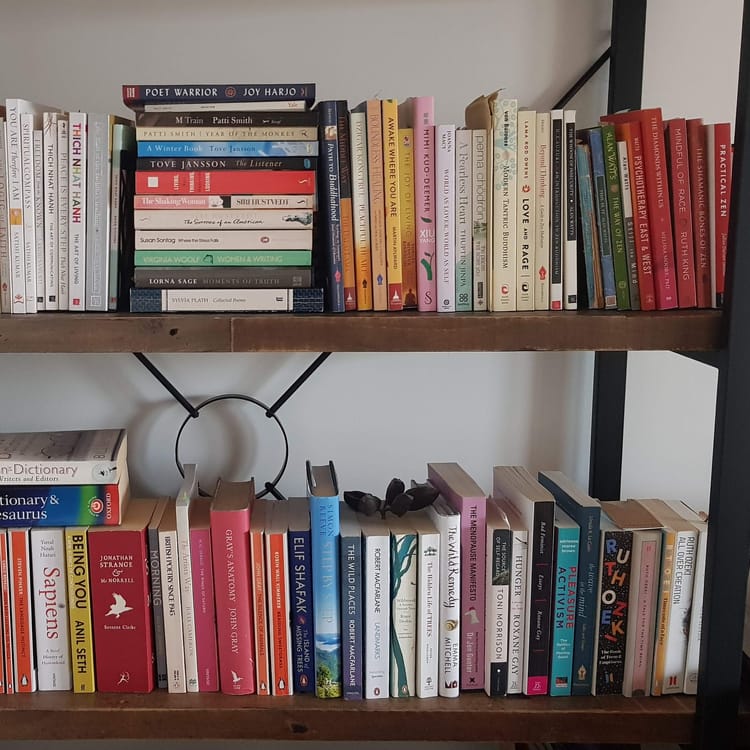Why worry? The trap of overthinking and the simply frustrating easy way that makes it hard to stop

“You shouldn’t worry so much,” he says and immediately I bristle, hold back the breath and the swallowed retort that I’m not sure is about me or him. “Easy for you to say,” I want to spit back. “Why aren’t you so worried?”
And that’s what stops me.
I know that it is easy for him to say, because of who and how he is. It frustrates me that I can be so reactive. It annoys me and it also simmers me down to realise that he is the opposite. And in the middle ground lies the answer.
Simultaneously, in the same moment, the activated part of me takes his response as a dismissal, as confirmation that he doesn’t understand me. When maybe he does, and he knows this does me no good, just as it doesn’t change the situation.
I know, of course I know, that to stop worrying will halt the train of mental anguish that manifests as a heavy body and a sunken heart, the nervous rush that has me reaching for habitual ways to ease the constriction which actually just numb and deepen the grooves of sorrow and regret.
Truly, it’s a trap.
Because why indeed do I worry so much? Who cares really? How much difference does it make? What good does it do?
It matters some and it will do some good if things work out as they should. In this case, at the time of this conversation, it mattered that the removals men who were transferring the contents of our house away from the city and to our relatively isolated country home, did so with enough care and regard that would minimise the damage I was anticipating (in reality, largely unjustified, but such is the mind, the stain of past experiences, the leakage of other people’s worries into our own minds, the porous nature of the stressed out brain – aka, the runaway train of mental overdrive, which in this instance, was heightened by standard moving-house stress, with an extra serving of hormones).
And then there’s history, social and familial patterning, the absence and the inheritance of hope, fear, expectation, disappointment, anxiety and loss, and the relative experience of less of that. There’s a fundamental difference in the way we see the world, in the way we experience things.
When it comes to the background, the baggage, the beauty and the blessings of who and how we are, individually and together, there’s my partner (white middle class male with privilege, as he admits) and there’s me (Brit-ish woman with a fair amount of privilege alongside the inherited and unresolved ancestral chain of trauma from my Pakistani and Ugandan-Asian roots).
And yet. All that reasoning, all that rationale, all that explaining and wondering why, only goes so far. It’s helpful to know, but what do we do with that knowledge? Understanding brings awareness. Then must come action. Then we have to pivot. Else we just get stuck, going around and around, fixating on the storyline. I know, I have known, many people like that. I have seen what a mess that makes, of minds and relationships. I am partly like that. I have done that. Got stuck in a story. The wrong story.
Isn’t this the way we are? Yes and no. It is part of who we are. But not the whole of it.
It’s only a trap if we don’t see the way out and find our way through.
Thank you for being here
If you find my words make a difference, please consider paying for a subscription. It would mean a lot to me & make a much-appreciated difference in return.
Upgrade to paidHe rarely gets stuck. Generally, I stop myself. Sometimes, my mind tightens around wondering why. There’s a part of me that would argue that I worry it because he doesn’t. There’s a legit subtext of aforesaid circumstances, causes and conditions.
There’s the mind in this wrangled state, worrying about what will happen if things don’t work out, if things aren’t what we thought they would be, if I’ve made the right or wrong decision. I ruminate and fear, panic and expend energy. Most times, things work out just fine. So why do I occasionally fall into the trap, when a lifetime’s practice has taught me to watch my step before I fall?
Circumstance, conditioning and habit. The first I can’t control, the other two I can, and often do. And when I don’t, it’s a rude and necessary awakening.
Everything is a portal to enlightenment as they say. If we can pause enough to see clearly and stop the cycle of needless suffering.
This worry has roots – learned ways of being, many witnessed and some most likely epigenetically passed down and through experiences that gave my family and ancestors reasons to worry about their safety, their lives and their rights.
Always on the defence. Always anticipating. Always going too fast. Just in case. Because you never know. You can’t trust anyone. Someone might cheat you. Might lie to you. Might be lying to you. Might hurt you. The assumed position is one of distrust.
And yet. It, I, don’t have to be this way. I don’t have to continue that chain of worry, woe, hope and fear. Which is why I stop myself, check myself. Is it me or is it you? Does it matter? Why not just drop it? Why not just stop?
Because that is too easy! How can it be that easy? We’ve been educated, socialised and raised to believe in the higher ideal of complexity. The thinking mind has been elevated as the supreme marker of intelligence. Our minds have gotten so high and distant from the wisdom of the body that we get tied up in neuronal knots with so much alleged knowledge and theory that we can’t see sense or feel a way out.
Truly, it’s a trap. To see it is to begin to get free.
And we have to see it, and feel the pain of it, in order to want to get out.
It’s the roots we have to dig up – cut the fixation, the habit energy, by digging deep into its origin, else it will keep on growing, no matter how many times you think you’ve cut it back, cut back on the habits. You have to dig it out.
Speaking with a friend recently who similarly has a partner who is equal parts helpfully and equal parts frustratingly nonreactive (interesting how we are drawn to these qualities, there’s reason for there for another time, or not), we lamented how our minds spin into combustible overdrive at this frictional interstate of communication in relationships where there’s a complicated and uneven mix of partially understood intergenerational trauma, personal and collective history.
It’s them. It’s us. It’s not him. It’s me. It’s not me, it’s him.
It’s actually a bit more me. And frustratingly, he’s right. I often talk about my partner’s inherently Zen-like state, in the true sense of Zen – he sees things as they are, without narrative, he doesn’t overcomplicate a situation, if there’s a task to be done, he just does it. No fuss, no added layer of complexity. Simple. Why make life any harder?
This is how I, we, suffer. When we refuse to accept the simple approach. When we make things harder than they need to be. When wondering becomes ruminating and catastrophising. When asking why brings us to a fork in the path that has yielded the insight of an “aha” moment, from which we can move on, learn and grow, or keep on with the questioning and storytelling, which might turn into a host of feelings and thoughts that unless we intervene, won’t let us rest.
All the emotions can be catalysts for resolve, understanding and transformation. Through the conflict we can find resolution. But not if we cling. Not if we attach ourselves to the story of pain and suffering, a story which can be and is valid and vital without the drag that brings us and keeps us down. Not if we don’t uproot the story.
I’m still working on that. Funny thing is, my Dad, who worries a lot, says the same – why worry, if there’s a solution, fix it, if not, stop. Why indeed, why do we do it to ourselves?
It’s complicated. It’s our story. And I’m working on it.
…
The house move went just fine. No extra ordinary dramas. Naturally, it was a challenge. It was tiring and there were minor nuisances. But all that worry came to nothing. What a waste, in a way. In another, a visceral realisation that the more skilful response is to just stop. Easier said than done when it comes to all the reasons apparently why.
But really, even then, I know, of course I know, why worry, when it really doesn’t matter. Not then. Not now. Not in the end.
Truly, it’s a trap. And we can get free. It might just take some time.





Member discussion